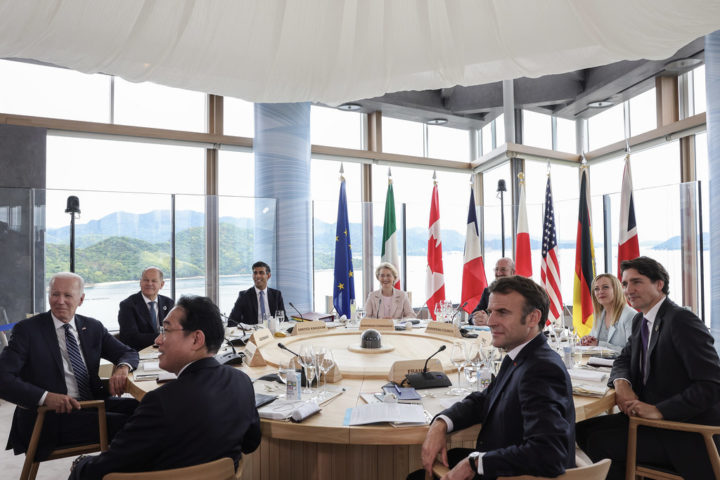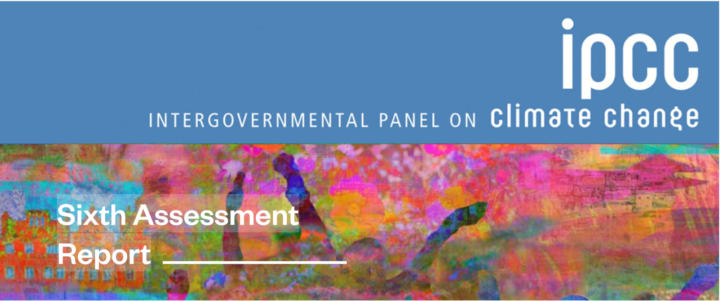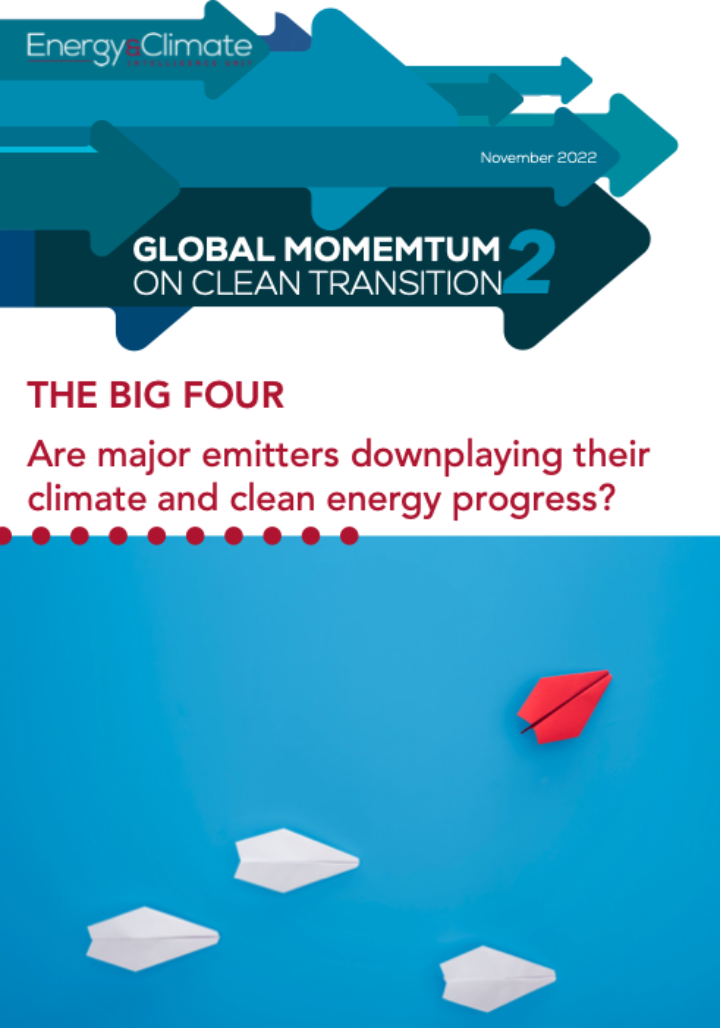G7 leaders and climate
Climate and energy loom large for G7 leaders as threats grow - but so too do the opportunities offered by the clean transition to net zero.

By Gareth Redmond-King
@gredmond76Share
Last updated:

The G7 brings the world’s leading economies together. Meeting in Hiroshima this year, heads of government from the US, Canada, EU, Japan, Germany, France, Italy and the UK convened with 2022’s poly-crisis still looming large, as Russia’s war in Ukraine compounds the worsening impacts of climate change to constrain supplies and increase costs of food and energy. As climate threats worsen, so the economic opportunities of clean transition to net zero become clearer. Yet they went into the summit against a backdrop of criticism that hosts, Japan are lagging on their climate commitments, and amidst worries that the issue may not get the prominence it requires in Hiroshima.
A backdrop of worsening impacts...
The world’s climate scientists reminded us in March that impacts of climate change are worsening, with nearly half the world’s population living in vulnerable areas. Since then, Southern Europe has seen record high spring temperatures that would be virtually impossible without climate change, and extreme heat in Laos, India, Thailand and Bangladesh was made thirty times worse by it.
The IPCC warned we are running out of time to keep heating to 1.5°C. Since then, the UK Met Office and World Meteorological Organisation (WMO) tell us that, with an expected El Niño effect this year, there’s a 66% certainty we’ll overshoot that limit in at least one year before 2027 – and near certainty that one of those years will be the hottest year on record.

...but still with time to act
That IPCC report was signed up to by almost all the world’s governments. It also included the message that we have the tools we need to get on track with emissions cuts this decade, and that doing so is cheaper than the cost of not; renewables are cheaper than fossil fuels, and climate disaster is very, very expensive.
Threats
The danger posed by human warming of our planet is daily evident in floods, droughts, cyclones, coastal erosion and more. But Russia’s President Putin has shone a great big spotlight on the main driver of climate change, as he made fossil fuels a weapon in his war on Ukraine. Energy costs have soared as a result of constrained gas supplies, and very high gas prices.
Evidence is clear that our energy would be cheaper and more secure if we had gone faster and further on clean techs than we have. If you doubt that, look at the EU going hell-for-leather to speed up transition to renewables, to end reliance on Russian oil and gas. Still doubt it? Even BP, acknowledge it in their 2023 Energy Outlook, in which their chief economist says:
"…the desire of countries to bolster their energy security by reducing their dependency on imported energy – dominated by fossil fuels – and instead have access to more domestically produced energy – much of which is likely to come from renewables and other non-fossil energy sources – suggests that the [Russia/Ukraine] war is likely to accelerate the pace of the energy transition."
We live in a globalised world. 2022 saw climate change, conflict, and covid cohere to cause a cost-of-living crisis in which energy and food shortages have driven inflation and prices sky-high for too many. A globalised world also means climate impacts don’t just affect people in the places where they happen. In the UK, we import half our food from overseas; in 2022 £24bn, or two-fifths, of that were foods that we simply can’t grow here instead. Beyond food, the Climate Change Committee warn a fifth of the value of our supply chains comes from climate impact hotspots around the world. Those supplies are threatened by extreme heat, floods and other climate disasters.
Opportunities
We’re one of the wealthiest countries on the planet – it’s in our gift to protect those supplies, not just by cutting emissions, but also supporting those most affected to adapt to climate change, and recover from disasters. We are paying over £11.6bn in climate finance to poorer nations over five years from 2020, but we have also cut overseas aid and spend a significant amount of it in the UK. It remains to be seen how committed the UK will be to delivering on the promise of the agreement at the last UN climate talks to develop a ‘loss and damage’ fund to help pay for that disaster recovery.
All the evidence also suggests it is to our considerable economic benefit to throw ourselves wholeheartedly into a clean transition that is well underway globally. Recent analysis suggests the net zero economy in the UK is worth over £70bn and employs some four to five times more people than the oil and gas industry. And globally, markets are driving the clean transition as costs of renewables fall below those of coal, oil and gas.

This is in no small part because the worst-emitting and biggest economies are investing big in the clean transition. The US has committed half a trillion dollars in support of various forms – expected to be worth more than three times that once it leverages private capital into the clean tech it is there to deploy. They are in a race to the top now with the EU who, as they speed up renewables deployment have also cut red tape and state aid rules to compete with the US – and with China, whose deployment of wind and solar is at a rate that dwarves the whole of the rest of the world.
G7 agenda
So why, then, are these combined threats and opportunities not dominating the G7 leaders’ meeting? As it stands, the agenda has a very general paragraph on climate and energy, reaffirming commitment to net zero, but with ominous references to “different national and regional circumstances”. This may be related to the other big question – why are hosts Japan pushing investing in ammonia, hydrogen and CCS rather than in the renewables that would ramp up their ambition in their Paris climate target? But overall, especially as food is also on the agenda, why are the opportunities to cut energy and food costs that net zero offers, as well as speeding up decarbonisation, not front and centre in the aim of the summit?
Looking ahead to COP28
It remains to be seen to what extent the meeting in Japan does shift the dial on these issues. G7 leaders went into the summit with calls from civil society groups to focus on phasing out subsidies for fossil fuels by 2025, domestic coal by 2030, and new petrol and diesel vehicles by 2035. There is also a huge task ahead for leading economies to reform international financial institutions as part of scaling up climate finance for poorer nations. This is ahead of a global summit in June hosted by France and current G20 chair, India. And all ahead of a global stocktake in September as to where we are on the Paris Agreement climate goals, to be addressed in Dubai at COP28.
As the world faces more extreme climate impacts every year, and with that global stocktake likely to reiterate previous assessments that we are not cutting emissions fast enough, it gets harder for leaders to pass these global moments by without sounding serious on climate. But if diplomatic rhetoric is not met by political action, then not only will things get worse, but the economies that delay miss the economic benefits, and we all bear the cost of those worsening impacts.

Share